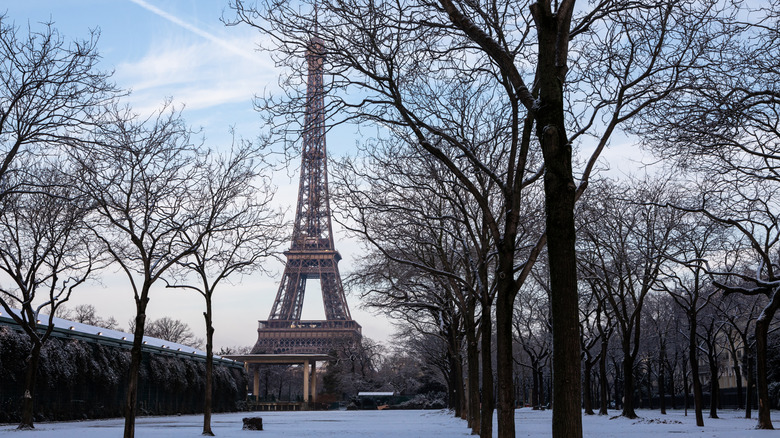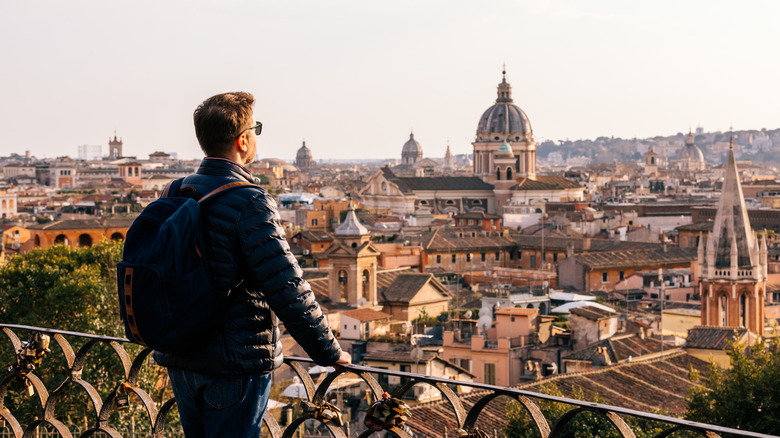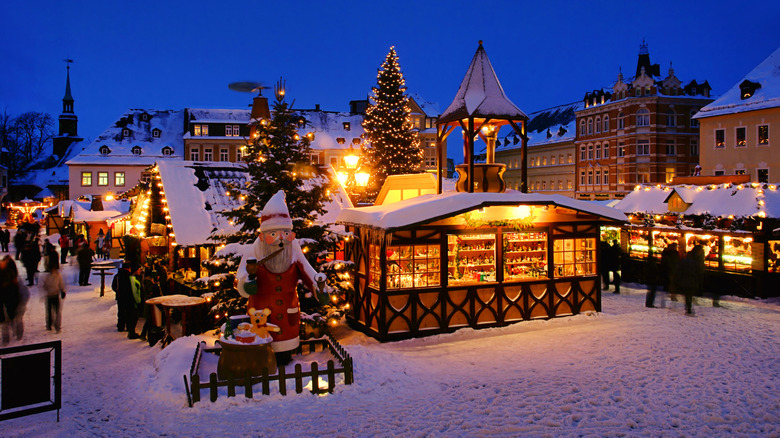Rick Steves Reveals The Surprising Season To Best Visit European Cities For A Peaceful Getaway
As much as a dreamy summer getaway on the Mediterranean or in the long summer days of Scandinavia has its appeal, acclaimed travel writer Rick Steves summarized the problems with traveling to Europe in summer in a talk posted to his YouTube profile. "The most grueling thing about European travel, especially if you're an older traveler, is the heat and the crowds of summer," he said. Heat and crowds proliferate into countless other hassles: long lines, packed hotels, fatigue just from walking around in the heat. On top of that, your European vacation survival guide should factor in that many European homes and buildings often don't have air conditioning. They do typically have heating, however, which is perhaps one reason Steves suggests embracing winter travel instead.
Not only does visiting Europe in the winter mean relief from scorching heat, but it also allows for a more intimate, peaceful experience with fewer tourists. "It's a beautiful time to go — you just got to dress for the cold weather," Steves said. "In Europe, they say there's no bad weather, just inappropriate clothing." He highlighted the fact that coming in the winter is a great way to bypass lines for major attractions, too. During the summer months, wait times for the Eiffel Tower, for example, can be up to three hours. Come in January or February, though, and you can expect to wait just 30 minutes. Quieter streets, snug cafes with plenty of seating, and less frantic train rides all add to the wintertime charm.
Rick Steves' advice for traveling to Europe in winter
As Rick Steves hinted at in the adage about inappropriate clothing, dressing right for the winter in Europe is everything. The weather is winter's main downside, but it can easily be compensated for. "The weather can be cold, windy, drizzly, and generally dreary, and you'll need to pack heavier, including a good waterproof coat and shoes," Steves wrote on his blog. Of course, the farther north you go, the more you'll have to layer. Temperatures around the southern countries are doable with a light jacket. In Sicily, for example, the temperature in January and February typically hovers around the mid-50 degrees Fahrenheit.
There's another potential snag of winter that's a bit harder to redeem than cold weather: the fact that many places have shorter hours, limited service, and fewer English-language tours. "And winter sightseeing can be especially frustrating in smaller tourist towns, where many sights and restaurants close down entirely," Steves wrote. Another way to look at it, though, is that you simply have to change priorities in winter. A spontaneous adventure to the countryside might be off the table, but bigger cities and sites are easier to enjoy without the crowds in the winter, especially if they're indoors. "Museums provide a warm and cozy haven," Steves noted.
The best winter-friendly destinations across Europe
If the rural areas are pretty difficult to navigate in the winter, then bigger cities, by contrast, are where travelers will still feel well-connected and find plenty to do. In particular, Rick Steves suggests the Mediterranean region, "which is often horribly hot and crowded in the summer, but fairly mild in winter." Many Mediterranean cities even have special wintertime festivals that can't be missed. Venice has its 10-day Carnival celebration in February, and in Barcelona you can catch the quirky winter gastronomic festival of the calçotada from January to March.
Some of the colder European countries lean into their climate in the winter and are delightful when the snow blankets the streets and warm wine is served from plazas. In Switzerland, winter sports are one of the country's biggest draws, and it helps that fairy tale Swiss Alps villages transform into a winter wonderland. Plus, the holiday season is extra special in central Europe. "For instance, German towns big and small light up with Christmas markets, highlighted by carolers, festive decor, artisan ornaments and other handicrafts, and seasonal treats such as hot spiced wine," explained Steves.


